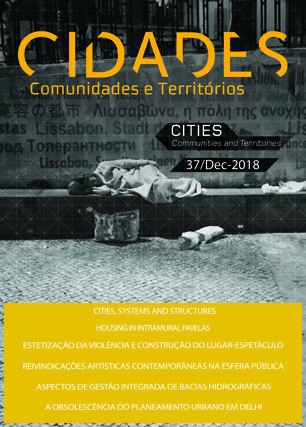The risks of an irreversible distance. The obsolescence of urban planning in the context of the Delhi Metropolitan Area
Keywords:
urban planning, public policy, territorial vulnerability, Delhi Metropolitan AreaAbstract
New Delhi is currently the second largest megacity in the world with a population of nearing 25 million inhabitants (UN, 2014). Its territory seems to have developed anarchically, enunciating an unrecoverable distance between planning practice and reality. We can, on the contrary, question if the perpetuation of this distance has not been embedded in the ways of ‘thinking and doing’ city, constituting the main driver in the physical and social construction of the metropolis. Between planning narratives and the surfacing of an informal urbanism it seems to exist a close relationship. The aim of this essay is to establish the nexus between the main planning moments in Delhi throughout history, the emergence of an informal and insurgent city parallel to the planned one and the panorama of vulnerabilities that impact the metropolis today. Finally, we conclude with the importance of this framework, as a reference for a broad reflection on urban development models taking into account the challenges of the 21st century.
Downloads
Published
Issue
Section
License
CIDADES, Comunidades e Territórios by DINÂMIA'CET-Iscte is licensed under a CC-BY licence.






